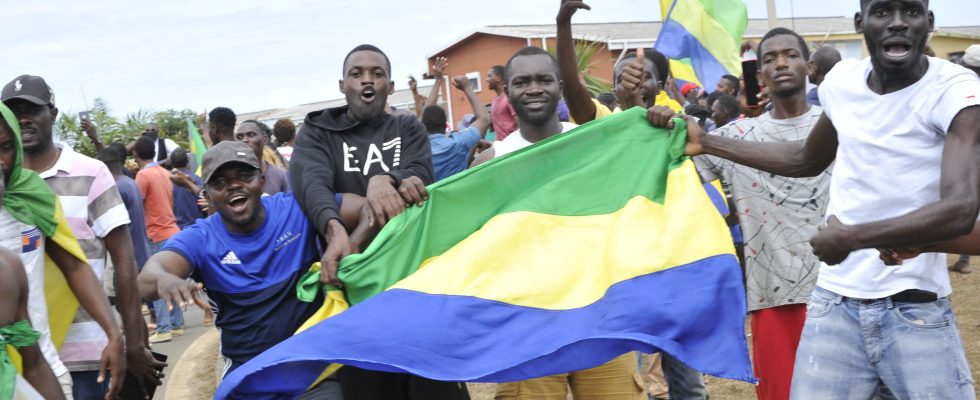Former collaborator of the DGSE, specialist in Africa, former adviser to the Secretary of State for Foreign Trade, and author of spy novels, Vincent Crouzet analyzes the recent putschs in Niger and Gabon. A disintegration of the State in his countries would be “extremely dangerous”, warns this good connoisseur of the continent, who fears a contagion effect in other countries.
L’Express: After the one in Niger, on July 26, the ongoing coup in Gabon, this Wednesday, August 30, does not seem to have been anticipated. Were there any warning signs?
Vincent Crouzet: Tensions were observed during the election period. Ali Bongo was challenged. Poor governance gives rise to harsh criticism and populism. But it is unacceptable to assert that bad governance legitimizes a coup.
Even if many African democracies are imperfect, there are still rather positive examples, such as in Kenya, Côte d’Ivoire or Senegal. We have to hold on to these signs of hope, because every time the military takes power through a putsch, people who have absolutely no skills to govern, no diplomatic skills to negotiate – as we see in Niger – pull the continent down.
How does this coup fit in with the logic of recent putsches in Mali, Burkina Faso and Niger?
The Gabonese soldiers have unfortunately taken the example of what has happened in recent years in Guinea, Mali, Burkina Faso, and most recently in Niger. From the moment no one was able to put a firm and definitive stop to these coups, the risk spread elsewhere. This is a very bad signal sent. And other countries could follow.
As a former colonial power, we are constantly in repentance. We do not assume the fact that to remain a major power, we must maintain political, economic and military influence in Africa, particularly in the face of the Chinese and Russian presence on the continent. Our competitors have no such scruples.
We are losing our footing on this continent. We need the political will to reverse the trend. I am very skeptical about the roots of anti-French sentiment. I believe that it is partly conveyed by the Pan-African elites and that it does not correspond to something real, within the populations, in Sahelian Africa.
The Bongo era, father and son, could end, after 55 years of reign…
It’s completely normal that the Bongo era ends one day or another. How the Déby era will end in Chad. It seems inevitable, but it cannot reasonably end in a coup. After Niger and Gabon, if we go back to this logic, Senegal could fall tomorrow, then Côte d’Ivoire…
Even if we can deplore bad governance, Niger and Gabon are real States, which, despite everything, function, and have political elites, national societies. A disintegration of these States would be extremely dangerous.
What are the main risks?
That would leave the door open to jihadism, but also to all kinds of criminogenic systems, to civil wars, but also to harmful influences in a context of global rivalry with Russia.
In addition to its oil wealth, Gabon is a major timber producer. Wagner started an important activity of this type in the Central African Republic through the company Bois Rouge which brings him enormous profits. Gabon’s timber resources could in turn be subject to Russian predation.
Even if Wagner is not, it seems, behind these coups, Russian military intelligence, very present in Africa, may have played a role. The Russians are, in any case, opportunistic and ready to rush into any empty space.
What geopolitical problems pose the coups in Niger and Gabon?
Niger is located at the heart of the Saharan routes, and therefore at the heart of the major Tuareg and jihadist political issues. Gabon makes the transition between part of French-speaking Africa, part of English-speaking Africa, and equatorial Africa. It has always been a pivotal country. In addition to its oil resources, it is a country which has real intellectual and political elites. But Niger is more strategic than Gabon, in the fight against terrorism, but also because of its position between the Maghreb and sub-Saharan Africa.
The number one reason for these coups d’etat is the vanity fair and the prevarication within the military elites, and the fact that we are no longer included in the presidential guards. Before, France always had relays in the heart of the palace, which could provide information and warn. Today, we no longer have any, because we are afraid of being singled out. But it may cost us dearly.
The problem now is that we cannot simultaneously manage the crises in Mali, Niger, Gabon, and perhaps, tomorrow, in Senegal. We no longer have the capacity in terms of manpower and resources in intelligence and the armed forces. Especially since we are still engaged in anti-jihadist operations in Syria and Iraq.
